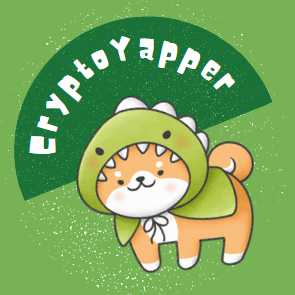


Prezzo di PolkadotDOT
Convertitore da DOT a EUR
Come ti senti oggi in merito a Polkadot?
A proposito di Polkadot (DOT)
Che cos'è Polkadot?
Polkadot (DOT) è un protocollo blockchain di nuova generazione che collega più blockchain specializzate in una rete unificata. È stato concepito e lanciato dalla Web3 Foundation, una fondazione svizzera che facilita un web decentralizzato completamente funzionale e facile da usare. La sua creazione è stata guidata dal Dr. Gavin Wood, uno dei co-fondatori di Ethereum e inventore del linguaggio di programmazione Solidity.
L'obiettivo fondamentale di Polkadot è quello di consentire alle reti blockchain di operare insieme in maniera uniforme, facilitando l'interoperabilità. Mentre l'attuale panorama delle blockchain è popolato da numerose blockchain isolate che operano in modo indipendente, l'obiettivo di Polkadot è quello di creare un'internet delle blockchain, dove più catene possono comunicare e transare in un ambiente sicuro e senza bisogno di fiducia.
Questa piattaforma innovativa è progettata per supportare diverse blockchain, che vanno dalle reti pubbliche, permissionless, alle consortium chain private, agli oracoli e ad altri sviluppi tecnologici futuri ancora sconosciuti. L'adattabilità di Polkadot è indicativa della visione della piattaforma di un web decentralizzato, dove sono gli utenti ad avere il controllo.
Risorse utili
Whitepaper: https://assets.polkadot.network/Polkadot-whitepaper.pdf
Sito web ufficiale: https://polkadot.network/
Come funziona Polkadot?
Per capire il funzionamento di Polkadot, è necessario conoscere la sua architettura, composta principalmente da Relay Chain, Parachain e Bridge (ponti).
Relay Chain
La Relay Chain è il cuore di Polkadot, responsabile della sicurezza condivisa della rete, del consenso e dell'interoperabilità cross-chain. Verifica e finalizza le transazioni delle blockchain collegate, garantendo la sicurezza complessiva della rete.
Parachain
Le Parachain sono singole blockchain che funzionano parallelamente all'interno dell'ecosistema di Polkadot. Ogni Parachain è unica, con caratteristiche e applicazioni specifiche, e tutte beneficiano della sicurezza fornita dalla Relay Chain. Le Parachain comunicano con la Relay Chain e tra di loro attraverso il Cross-Chain Message Passing (XCMP).
Bridge
I Bridge sono blockchain speciali che collegano Polkadot con reti esterne come Ethereum o Bitcoin, garantendo l'interconnettività delle blockchain in tutta la sfera delle blockchain, non solo all'interno di Polkadot.
Le operazioni di Polkadot sono orchestrate attraverso un sofisticato meccanismo di consenso, che sfrutta aspetti della proof-of-stake e della tolleranza agli errori bizantina (Byzantine Fault Tolerance). I validatori che mettono in stake i token DOT nativi sono selezionati per produrre blocchi sulla Relay Chain e confermare le transazioni delle Parachain. I nominatori, invece, selezionano i validatori affidabili, contribuendo alla sicurezza della rete. Altri ruoli includono i Collator, che raccolgono le transazioni delle Parachain e producono prove per i validatori, e i Fishermen, che monitorano la rete e segnalano le attività dannose.
Il token DOT
Il token DOT è la criptovaluta nativa della rete Polkadot. Ha molteplici funzioni all'interno dell'ecosistema di Polkadot, svolgendo un ruolo cruciale nel funzionamento, nella governance e nella sicurezza della piattaforma.
Ruolo nel funzionamento della rete
I token DOT sono utilizzati principalmente per il funzionamento della rete. I partecipanti possono vincolare i token DOT per aggiungere nuove Parachain (blockchain parallele) o per effettuare altre operazioni. Questo processo di bonding (vincolo) è fondamentale per mantenere la sicurezza e la stabilità generale della rete.
Ruolo nella governance
Il token DOT ha un ruolo fondamentale nella governance on-chain di Polkadot. Gli holder di DOT hanno il diritto di votare sulle modifiche proposte alla rete, compresa l'aggiunta di nuove Parachain e gli aggiornamenti del sistema. Ciò consente un processo decisionale completamente decentralizzato e democratico, in cui ogni holder di DOT ha voce in capitolo.
Ruolo nella sicurezza
Nell'ecosistema di Polkadot, i token DOT sono utilizzati anche per incentivare il buon comportamento attraverso un meccanismo chiamato staking. I validatori mettono in stake i token DOT come una sorta di deposito di sicurezza. Coloro che agiscono in modo disonesto o tentano di attaccare la rete subiranno un slashing (taglio) del loro stake, perdendo una parte o tutti i DOT messi in stake. Questo meccanismo aiuta a proteggere la rete da attività dannose.
Ruolo nell'interoperabilità
Infine, il token DOT viene utilizzato per facilitare l'interoperabilità tra le diverse blockchain. Le transazioni cross-chain spesso richiedono un token nativo per essere processate, e nell'ecosistema di Polkadot i token DOT svolgono questa funzione.
Cosa determina il prezzo di Polkadot?
Il prezzo di Polkadot è influenzato da una miriade di fattori che contribuiscono alla sua volatilità e al suo valore di mercato. Uno dei principali fattori che determinano il prezzo di Polkadot oggi è la sua utilità e la sua adozione all'interno dell'ecosistema blockchain. Polkadot, spesso acclamata per le sue capacità multi-chain, facilita i trasferimenti cross-chain di dati e asset. Questo la rende un pilastro per l'interoperabilità nello spazio blockchain. Il suo token nativo, DOT, svolge un ruolo fondamentale nei processi di governance, staking e bonding della rete. Quanti più progetti utilizzano o si integrano con Polkadot, tanto maggiore sarà la domanda di DOT, che a sua volta inciderà sulla sua capitalizzazione di mercato e sul suo valore complessivo.
La scalabilità e la funzionalità cross-chain di Polkadot hanno attirato progetti significativi nel suo ecosistema, aumentando ulteriormente la sua utilità e, di conseguenza, il suo prezzo. Pertanto, coloro che sono interessati alle previsioni di prezzo di Polkadot dovrebbero considerare questi vantaggi tecnologici quando valutano il suo valore a lungo termine.
Un altro fattore significativo nella previsione del prezzo di Polkadot e nella speculazione sul suo prezzo è il sentiment del mercato, spesso influenzato dai cicli di notizie, dai progressi tecnologici e dai fattori macroeconomici. Il comportamento degli investitori, che si riflette nei grafici dei prezzi e nell'analisi dei prezzi di Polkadot, può essere reattivo agli aggiornamenti di rete, alle partnership e alle ricompense per lo staking. Ad esempio, la politica monetaria inflazionistica di Polkadot, progettata per incentivare la partecipazione alla rete, può regolare dinamicamente l'offerta di DOT, influenzando le previsioni di prezzo di Polkadot sia nel breve che nel lungo periodo.
Se stai pensando di acquistare Polkadot o sei interessato al suo prezzo futuro, è fondamentale considerare anche fattori esterni come le notizie normative e le tendenze di mercato più generali. Questi fattori esterni possono avere un impatto immediato sul prezzo di Polkadot in tempo reale, comunemente indicato come prezzo live di Polkadot. Pertanto, un aggiornamento completo del prezzo di Polkadot dovrebbe prendere in considerazione sia l'utilità intrinseca che il più ampio sentiment del mercato per fornire una panoramica esaustiva del suo prezzo attuale e futuro.
Conclusione
Polkadot è più di un semplice protocollo blockchain; è una visione per un web decentralizzato in cui più blockchain coesistono e interagiscono in maniera fluida. Concentrandosi sull'interoperabilità, sulla scalabilità e su un approccio incentrato sull'utente, Polkadot è destinato a diventare una parte vitale del futuro decentralizzato di Internet. Le future sezioni di questo articolo approfondiranno ciascuno di questi aspetti, fornendo un'approfondita comprensione dell'architettura unica di Polkadot, delle sue caratteristiche, del ruolo del token DOT e della sua governance decentralizzata.
Articoli correlati su Polkadot
Rapporto di analisi IA su Polkadot
Prezzo di Polkadot di oggi in EUR
Storico dei prezzi di Polkadot (EUR)
 Prezzo più basso
Prezzo più basso Prezzo più alto
Prezzo più alto 
Qual è il prezzo più alto di Polkadot?
Qual è il prezzo più basso di Polkadot?
Previsione del prezzo di Polkadot
Quando è il momento giusto per acquistare DOT? Dovrei acquistare o vendere DOT ora?
Quale sarà il prezzo di DOT nel 2026?
Quale sarà il prezzo di DOT nel 2031?
FAQ
Quali fattori influenzano il prezzo di Polkadot (DOT)?
Qual è stata la tendenza storica del prezzo di Polkadot?
Qual è la previsione del prezzo futuro per Polkadot?
È un buon momento per investire in Polkadot?
Come posso acquistare Polkadot su Bitget Exchange?
Qual è la capitalizzazione di mercato di Polkadot e perché è importante?
Raggiungerà il prezzo di Polkadot $100?
Quali sono le principali sfide che potrebbero influenzare il prezzo di Polkadot?
Come influisce il meccanismo di staking di Polkadot sul suo prezzo?
Posso fare trading di futures su Polkadot su Bitget Exchange?
In che modo Polkadot intende risolvere i problemi di scalabilità affrontati da altre blockchain?
Qual è lo scopo principale di Polkadot (DOT)?
Qual è stato il prezzo di DOT durante la sua ICO (Offerta di moneta iniziale)?
Polkadot è un buon investimento?
Come funziona lo staking di DOT e come influisce sul suo valore?
È possibile minare Polkadot?
Qual è il prezzo attuale di Polkadot?
Qual è il volume di trading di 24 ore di Polkadot?
Qual è il massimo storico di Polkadot?
Posso acquistare Polkadot su Bitget?
Posso ottenere un guadagno costante investendo in Polkadot?
Dove posso acquistare Polkadot con la commissione più bassa?
Notizie su Polkadot
Aggiornamenti su Polkadot
Cos'è la Proof of Stake (PoS)? In cosa si differenzia dalla Proof of Work (PoW)?
Mystiko.Network (XZK): migliorare la privacy e la sicurezza del Web3 con la tecnologia ZK
Manta Network (MANTA): costruire il Web3 utilizzando un approccio a doppia blockchain
Cos'è l'interoperabilità?
Sintesi delle notizie della seconda settimana di gennaio da Bitget
I vari meccanismi di consenso della blockchain
Conoscere i principali strumenti DeFi
Come orientarsi nell'avvento del Web3
Le 5 principali altcoin da tenere d'occhio nel 2023
La storia delle criptovalute in 2 minuti: leggi qui!
Mercato Polkadot
Saldo di Polkadot per concentrazione
Indirizzi Polkadot per durata dell'holding

Prezzi di Polkadot globali
- 1
- 2
- 3
- 4
- 5
Come acquistare Polkadot(DOT)

Crea il Tuo Conto Bitget Gratuito

Verifica il Tuo Conto

Converti Polkadot in DOT
Fai trading sui futures perpetui DOT
Dopo essersi registrati con successo su Bitget e aver acquistato i token USDT o DOT, puoi iniziare a fare trading sui derivati, compresi i futures DOT e il trading con margine, per aumentare i tuoi rendimenti.
Il prezzo attuale di DOT è €3.2, con una variazione di prezzo in 24 ore di +3.25%. I trader possono trarre profitto sia andando long che short sui futures DOT.
Partecipa al copy trading di DOT seguendo i trader d’élite.
Nuovi listing su Bitget
Acquista di più
Dove posso acquistare Polkadot (DOT)?
Sezione video: verifica rapida e accesso rapido al trading

Convertitore da DOT a EUR
Valutazioni di Polkadot
Bitget Insights





Asset correlati
Informazioni aggiuntive su Polkadot
Panoramica della moneta
In relazione alle monete
In relazione al trading
Aggiornamenti delle monete


































Dati social di Polkadot
Nelle ultime 24 ore, il punteggio riguardo l’opinione generale sui social media per Polkadot è stato 3, e l’opinione generale sui social media verso l'andamento dei prezzi di Polkadot è stato Rialzista. Il punteggio complessivo di Polkadot sui social media è stato di 70,031, collocandosi al 91° posto tra tutte le criptovalute.
Secondo LunarCrush, nelle ultime 24 ore le criptovalute sono state menzionate sui social media per un totale di 1,058,120 volte, con Polkadot che è stato menzionato con un rapporto di frequenza pari al 0.09%, posizionandosi al 30° posto tra tutte le criptovalute.
Nelle ultime 24 ore, ci sono stati in totale 1,548 utenti unici che hanno discusso di Polkadot, con un totale di 907 menzioni riguardo Polkadot. Tuttavia, rispetto alle 24 ore precedenti, il numero di utenti unici ha avuto un/una Incremento del 12%, inoltre il numero totale di menzioni ha avuto un/una Incremento del 26%.
Su X, c'è stato un totale di 21 tweet che hanno menzionato Polkadot nelle ultime 24 ore. Tra questi, il 5% è rialzista su Polkadot, il 0% è ribassista su Polkadot ed il 95% è neutrale su Polkadot.
Su Reddit, ci sono stati 18 post che hanno menzionato Polkadot nelle ultime 24 ore. Rispetto al precedente periodo di 24 ore, il numero di menzioni ha avuto un/una Incremento del 6%.
Panoramica su tutti i social
3